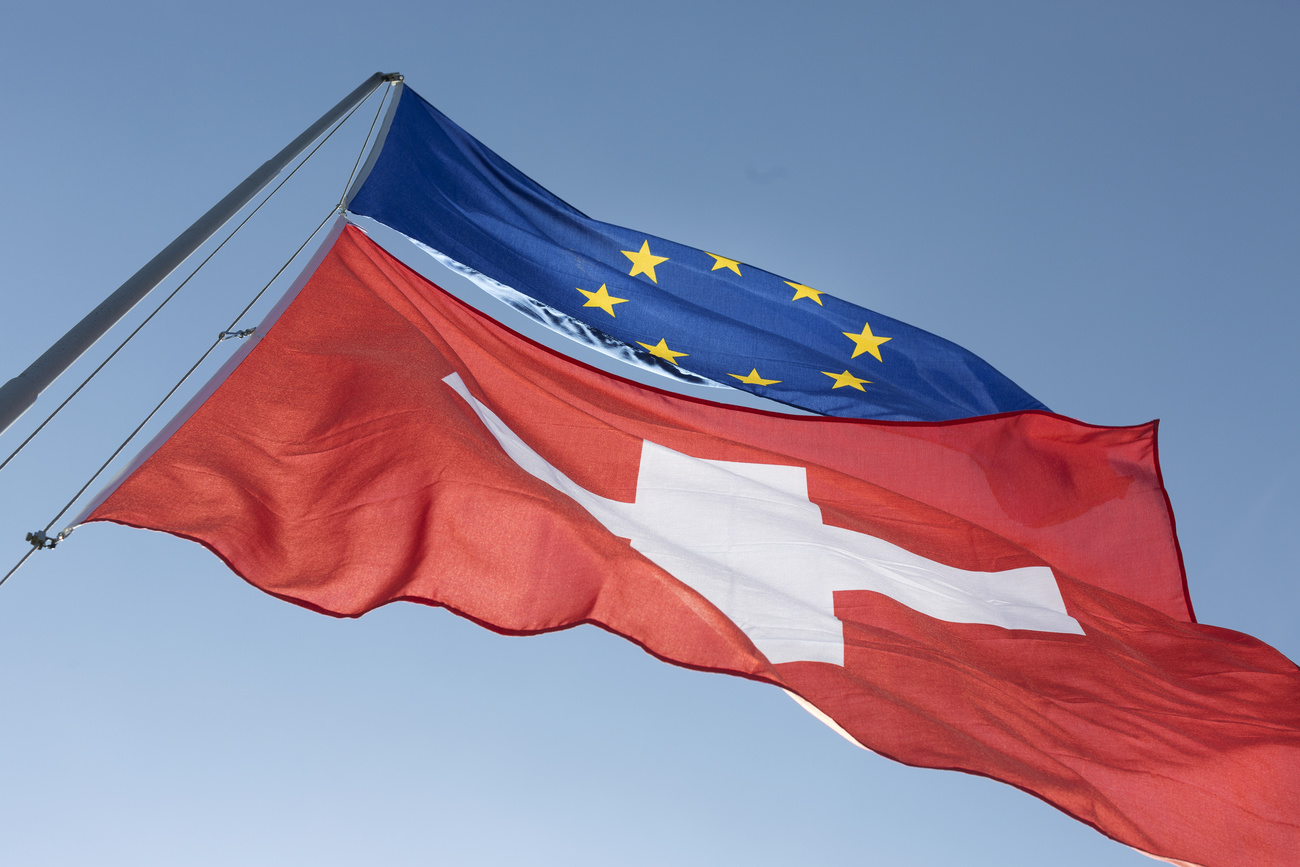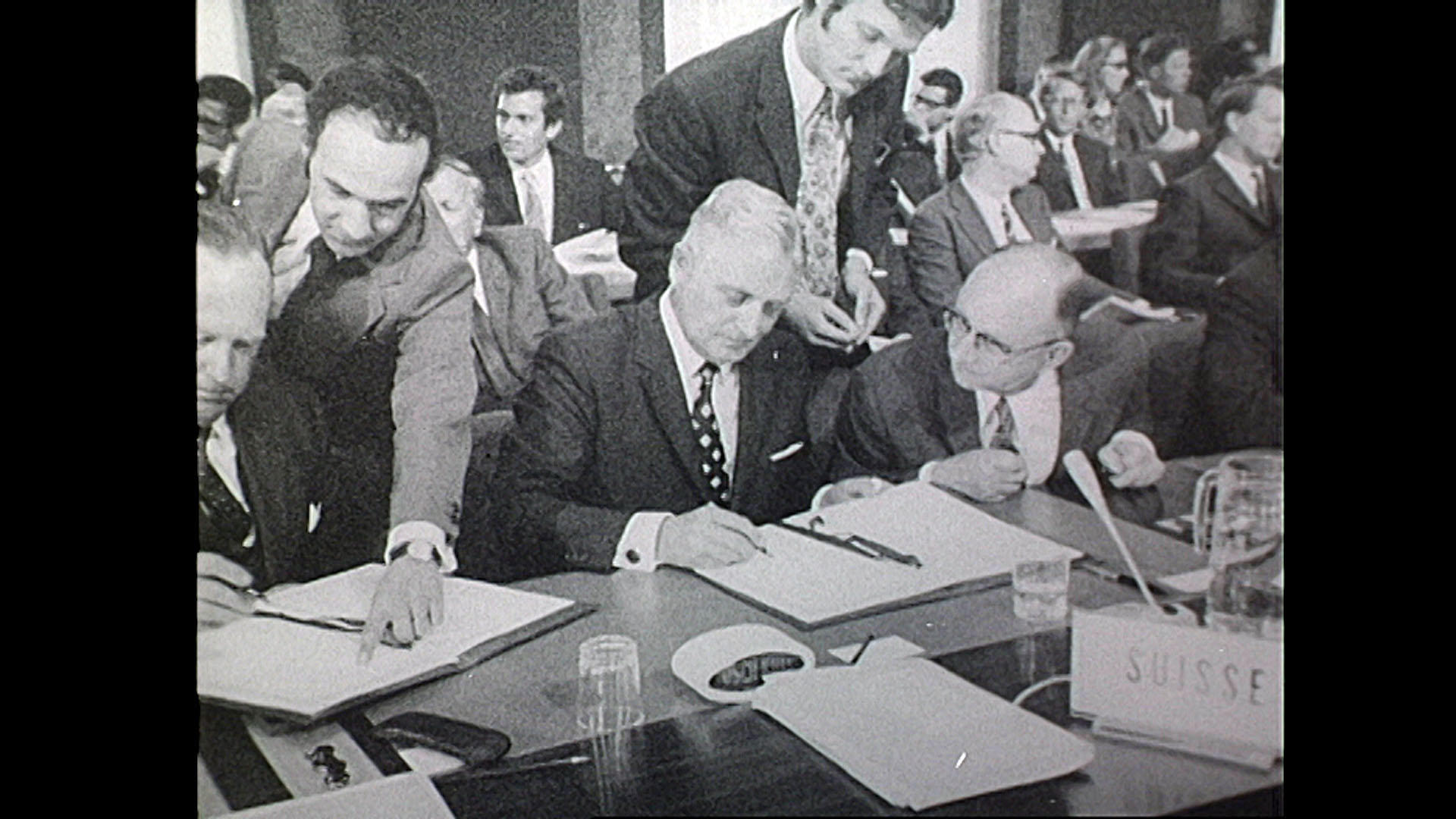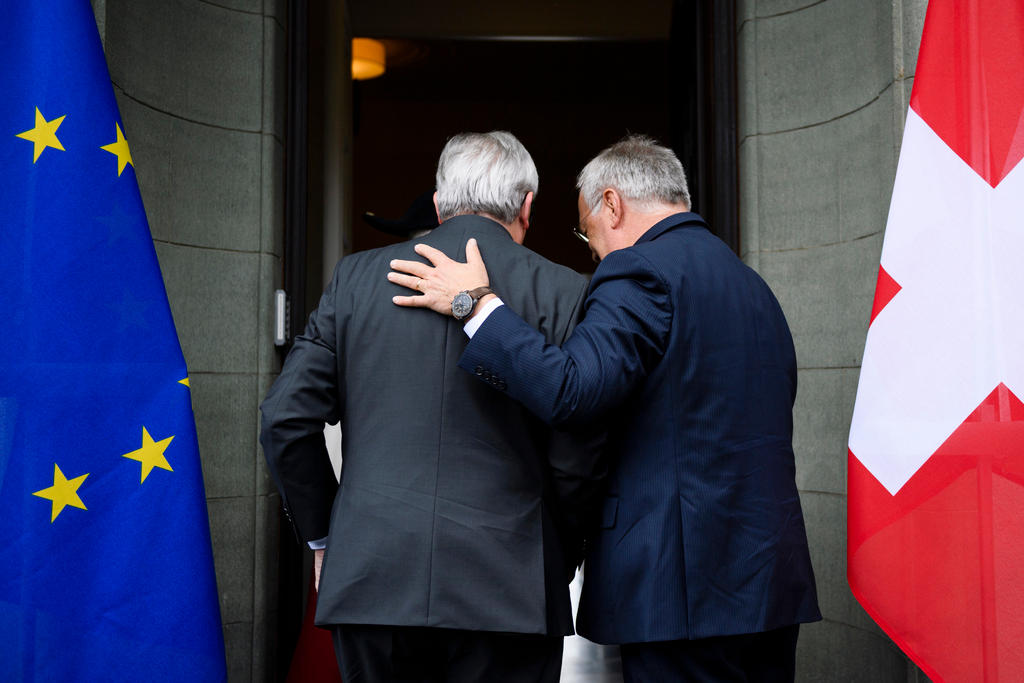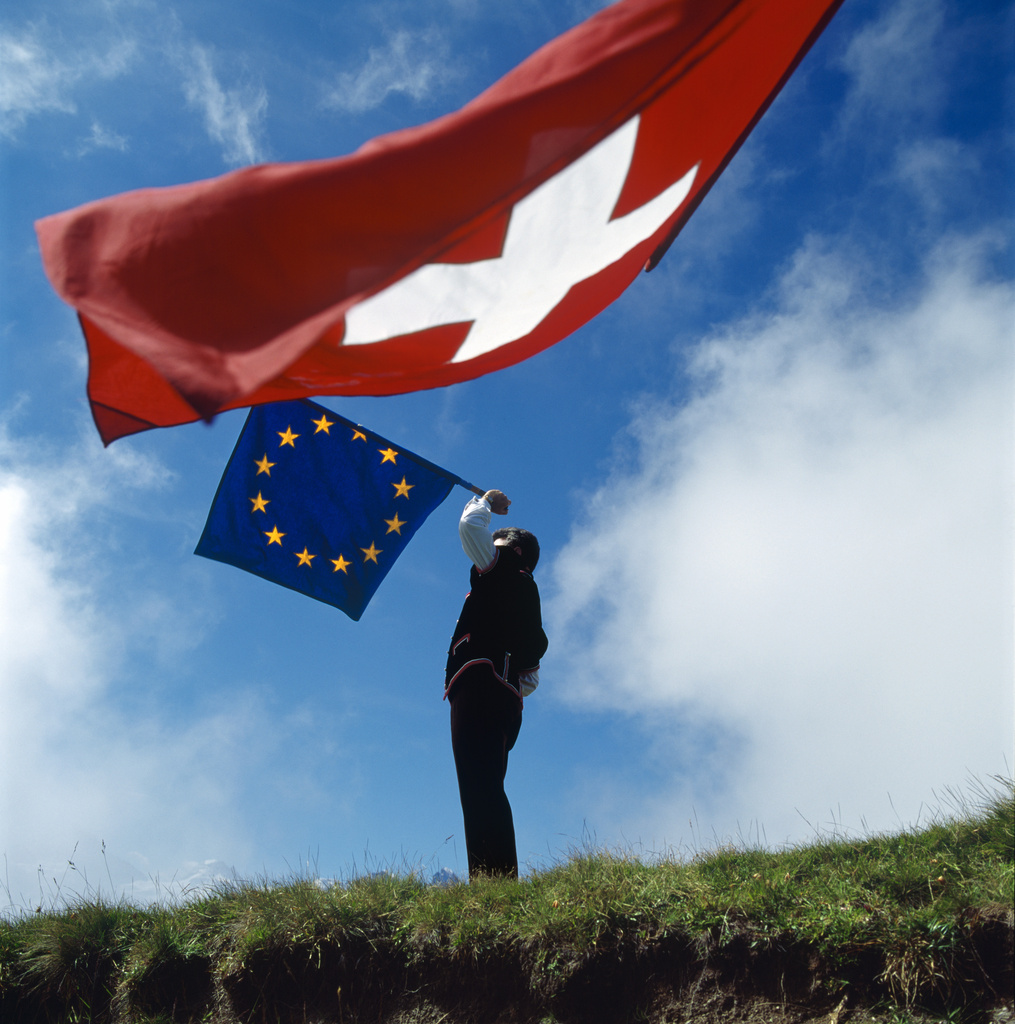Why Swiss voters will decide again on EU immigration

The proposal to scrap a labour accord with the European Union is the latest attempt by right-wing parties to restrict immigration to Switzerland.
The initiative was launched in response to parliament’s refusal to implement immigration quotas approved by voters in 2014.
The vote is seen as crucial for future relations between non-EU member Switzerland and the 27-nation bloc.
It is part of a set of five issues to be decided on September 27.
What’s at stake?
The initiative wants the Swiss government to suspend an existing bilateral accord with the EU on the free movement of people and to take over full control of the country’s immigration policy.
The deal with the EU must be re-negotiated with Brussels within the next 12 months. Or it has to be scrapped altogether according to the promoters of the initiative.
Under the current free movement accord, both sides allow free access to each other’s labour markets and the right to choose the place of residence.
If the Swiss agree to restrict immigration from EU states, it would also make invalid other accords on trade, transport and research as they are part of a package of seven bilateral deals in force since 2002.
The EU is the most important trading partner for Switzerland with a share of about 60%, ahead of the United States (12%) and China (6%), according to official data from 2018.
What are the main arguments for and against?
According to the promoters of the initiativeExternal link, the current immigration regime puts pressure on jobs and salaries in Switzerland. They say that it leads to an increase in rents for housing and overcrowding in public transport and schools.
They also argue that foreigners are to blame for many incidents of crime in Switzerland and abuse of the country’s welfare system.
Supporters say concerns about a negative impact of the immigration restrictions on Switzerland’s economy are unfounded as it is in the interest of the EU to give in to Swiss demands.
Switzerland should be free to define its immigration policy as an independent country according to the supporters.
More
Opponents of the initiativeExternal link have warned of dire consequences of immigration curbs for the Swiss economy, notably for small businesses. Approval of the right-wing proposal would create legal uncertainty and put an additional strain on bilateral relations with the 27-bloc, Switzerland’s main trading partner.
They point out that the EU will not be willing to give an exception to Switzerland on the free movement of people policy, one of the EU’s key policy tenants.
Opponents have also pointed out that Swiss citizens will lose the right to live and work in EU countries if the initiative wins a majority in the vote.
They have warned that approval of the immigration curbs would jeopardise relations with Brussels strained notably over a planned so-called framework accord aimed at ensuring a more uniform and efficient application of existing and future market access deals.
Why do voters have a say?
Under the Swiss system of direct democracy, proposals for a constitutional amendment can be put to a nationwide ballot if campaigners succeed in gathering at least 100,000 signatures over 18 months.
The People’s Party and like-minded groups started collecting signatures at the beginning of 2018 and submitted them eight months later.
Both the government and parliament discussed the initiative as part of the regular political procedure.
Who are the supporters and the opponents?
The Swiss People’s Party is the driving force behind the initiative along with other conservative groups, including the Campaign for an Independent and Neutral Switzerland.
Opponents of the initiative include political parties from the centre-right to the left of the political spectrum, a majority of parliament and the government.
The business community and trade unions as well as the cantons and a broad alliance of civil society groups are also campaigning against the initiative.
Similarly, the Organisation of the Swiss Abroad, representing the interests of the expatriate Swiss community, has recommended rejection of the initiative. Most Swiss expats live in neighbouring European countries.
How often have the Swiss voted on immigration and EU ties?
Swiss voters have regularly had the final say on anti-immigration proposals as well as the country’s ties with the EU.
Relations with the EU are governed by more than 120 bilateral accords in force since 1972.
Over the years, at least 12 votes were held aimed either at boosting relations between Switzerland and the EU, or at reversing integration.
A proposal for membership in the European Economic Area association – a halfway house to EU membership – was rejected by voters in 1992.
The last EU-related ballot dates back six years ago when voters approved quotas for immigrants. Parliament refused to implement the initiative to the letter, arguing Brussels wouldn’t accept any attempt to undermine the freedom of movement principle.
Instead parliament introduced a ‘Swiss first’ clause for certain sectors of the labour market, a move dismissed by the political right.
One of the driving forces against closer relations with the EU is the People’s Party, the largest of the four main parties represented in the Swiss government.
The party’s strongman Christoph Blocher has also made immigration restrictions one of the key policy issues of the political right.
Swiss voters have had their say on more than 40 anti-immigration proposals since the 1970s.

More
Swiss-EU relations: the key milestones

In compliance with the JTI standards
More: SWI swissinfo.ch certified by the Journalism Trust Initiative






Join the conversation!